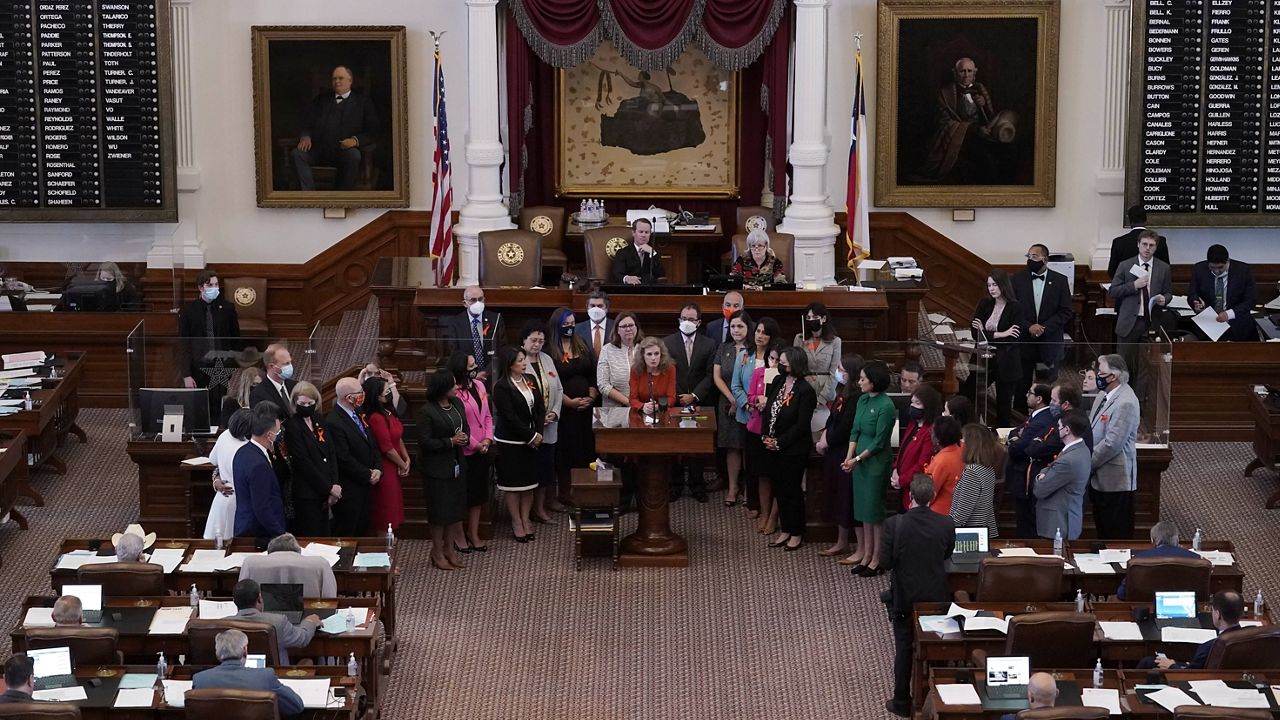A Texas law banning most abortions in the state took effect at midnight, but the Supreme Court has yet to act on an emergency appeal to put the law on hold.
What You Need To Know
- A Texas law banning most abortions in the state took effect at midnight, but the Supreme Court has yet to act on an emergency appeal to put the law on hold
- If allowed to remain in force, the law would be the most dramatic restriction on abortion rights in the United States since the high court’s landmark Roe v. Wade decision legalized abortion across the country in 1973
- The Texas law, signed by Republican Gov. Greg Abbott in May, prohibits abortions once a fetal heartbeat can be detected, usually around six weeks and before most women even know they’re pregnant
- President Joe Biden said the law "blatantly violates the constitutional right established under Roe v. Wade" and pledged that his administration will "protect and defend that right"
If allowed to remain in force, the law would be the most dramatic restriction on abortion rights in the United States since the high court’s landmark Roe v. Wade decision legalized abortion across the country in 1973.
The Texas law, signed by Republican Gov. Greg Abbott in May, would prohibit abortions once a fetal heartbeat can be detected, usually around six weeks and before most women even know they’re pregnant.
In a statement, President Joe Biden said the law "blatantly violates the constitutional right established under Roe v. Wade," which has been upheld for nearly 50 years.
"The Texas law will significantly impair women’s access to the health care they need, particularly for communities of color and individuals with low incomes," Biden said. "And, outrageously, it deputizes private citizens to bring lawsuits against anyone who they believe has helped another person get an abortion, which might even include family members, health care workers, front desk staff at a health care clinic, or strangers with no connection to the individual."
Biden pledged that his administration "is deeply committed to the constitutional right established in Roe v. Wade ... and will protect and defend that right."
"Today, a new law takes effect in Texas that directly violates the precedent established in the landmark case of Roe v. Wade," Vice President Kamala Harris said in a statement released later Wednesday. "This all-out assault on reproductive health effectively bans abortion for the nearly 7 million Texans of reproductive age."
"Patients in Texas will now be forced to travel out-of-state or carry their pregnancy to term against their will," the vice president explained. "This law will dramatically reduce access to reproductive care for women in Texas, particularly for women with low incomes and women of color. It also includes a disturbing provision that incentivizes private citizens to sue anyone who assists another person in receiving an abortion."
"The Biden-Harris Administration will always fight to protect access to healthcare and defend a woman’s right to make decisions about her body and determine her future," Harris concluded.
Abortion providers who are asking the Supreme Court to step in said the law would rule out 85% of abortions in Texas and force many clinics to close. Planned Parenthood is among the abortion providers that have stopped scheduling abortions beyond six weeks from conception.
At least 12 other states have enacted bans on abortion early in pregnancy, but all have been blocked from going into effect.
What makes the Texas law different is its unusual enforcement scheme. Rather than have officials responsible for enforcing the law, private citizens are authorized to sue abortion providers and anyone involved in facilitating abortions. Among other situations, that would include anyone who drives a woman to a clinic to get an abortion. Under the law, anyone who successfully sues another person would be entitled to at least $10,000.
Abortion opponents who wrote the law also made it difficult to challenge the law in court, in part because it’s hard to know whom to sue.
Texas has long had some of the nation’s toughest abortion restrictions, including a sweeping law passed in 2013 that the Supreme Court eventually struck down but not before more than half of the state’s 40-plus abortion clinics closed.
Lawmakers also are moving forward in an ongoing special session in Texas with proposed new restrictions on medication abortion, a method using pills that accounts for roughly 40% of abortions in the U.S.



